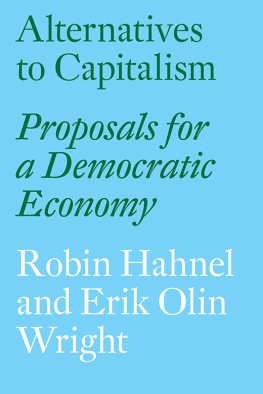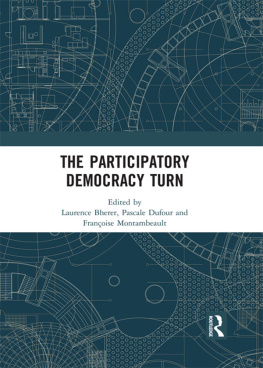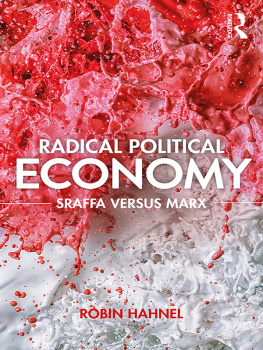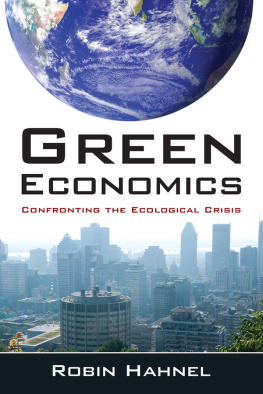Robin Hahnel - A Participatory Economy
Here you can read online Robin Hahnel - A Participatory Economy full text of the book (entire story) in english for free. Download pdf and epub, get meaning, cover and reviews about this ebook. year: 2022, publisher: AK Press, genre: Politics. Description of the work, (preface) as well as reviews are available. Best literature library LitArk.com created for fans of good reading and offers a wide selection of genres:
Romance novel
Science fiction
Adventure
Detective
Science
History
Home and family
Prose
Art
Politics
Computer
Non-fiction
Religion
Business
Children
Humor
Choose a favorite category and find really read worthwhile books. Enjoy immersion in the world of imagination, feel the emotions of the characters or learn something new for yourself, make an fascinating discovery.

- Book:A Participatory Economy
- Author:
- Publisher:AK Press
- Genre:
- Year:2022
- Rating:5 / 5
- Favourites:Add to favourites
- Your mark:
- 100
- 1
- 2
- 3
- 4
- 5
A Participatory Economy: summary, description and annotation
We offer to read an annotation, description, summary or preface (depends on what the author of the book "A Participatory Economy" wrote himself). If you haven't found the necessary information about the book — write in the comments, we will try to find it.
A Participatory Economy — read online for free the complete book (whole text) full work
Below is the text of the book, divided by pages. System saving the place of the last page read, allows you to conveniently read the book "A Participatory Economy" online for free, without having to search again every time where you left off. Put a bookmark, and you can go to the page where you finished reading at any time.
Font size:
Interval:
Bookmark:
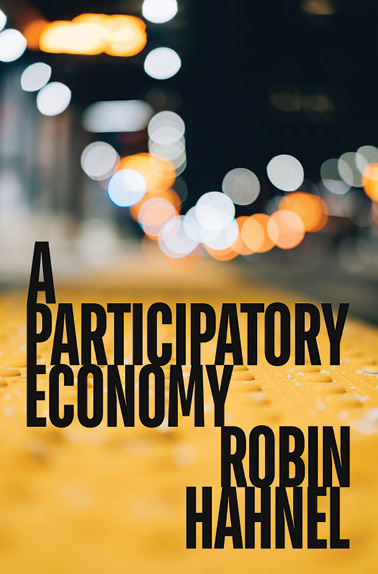
A
PARTICIPATORY
ECONOMY
By Robin Hahnel

A key contribution to the on-going debate on democratic and participatory socialism. A must read!
Thomas Piketty, author of Capital in the Twenty-First Century
Tired of having your life determined by a handful of gazillionaires, but afraid there is no alternative except an economic dictatorship? In A Participatory Economy , Robin Hahnel shows in concrete detailand without economic jargonhow ordinary people can run an economy to meet their own needs through worker and consumer councils and federations. Of course many economists question that this is even possible but Hahnel provides powerful answers to rebut their denials. A Participatory Economy provides a provocative thought experiment demonstrating that there is indeed an alternative to both neoliberal capitalism and economic despotism.
Jeremy Brecher, author of Strike!
I found Robin Hahnels work on participatory economics as a young activist. I was mad at the world and committed to changing it, but ultimately hopeless about our chances of winning and confused about what winning might look like. Participatory economics gave me an opportunity to think about that future, to really imagine it, and to fight for it more effectively. This book is a brilliant distillation of those concepts, and a must-have resource for people looking to reshape this world into one in which we can truly thrive.
Yotam Marom, facilitator and former leader in Occupy Wall Street
Todays labor movement is in crisis. Many unions have not only abandoned the struggle to challenge the rule of capital, but also the responsibility to imagine the features of a new world. To break free of this impasse, we need to advance a socialist vision that puts humanity on the road to a classless society. In A Participatory Economy , Robin Hahnel advances a vision in which the means of social production and reproduction are held in common, human needs are met, our ecosystem is protected for present and future generations, and economic activity is planned and coordinated democratically by councils of workers and our communities. If youre curious what a better world beyond capitalism might look like, read this book!
Pdraig Connolly, Virginia Caucus of Rank-and-file Educators and CounterPower
[Capitalism] is not a success. It is not intelligent, it is not beautiful, it is not just, it is not virtuousand it doesnt deliver the goods. In short, we dislike it, and we are beginning to despise it. But when we wonder what to put in its place, we are extremely perplexed.
John Maynard Keynes (1933)
Keynes penned these prophetic words when capitalism had descended into what would become the worst crisis in its history, and when Stalins socialist alternative had already become a totalitarian nightmare of show trials and purges with a prison gulag soon to be populated by tens of millions of the workers and peasants who had supposedly become the masters of their destinies.
The question Keynes posedIf not capitalism, then what?still requires an answer. It still requires more than criticism of all that is wrong in todays economies. It still requires more than vague generalities about what twenty-first-century anticapitalists propose instead. It still requires matter-of-fact, concrete answers to how all the different kinds of economic decisions that must be made in any economy might be made, and why outcomes from these procedures would be desirable. The model of a participatory economy presented in this bookwhich has been described and refined in a number of books, journal articles, websites, and countless presentations at conferences over the past half centuryis our answer to those who, like Keynes, increasingly dislike capitalism, but are perplexed by what to replace it with and are not easily persuaded by sweeping generalities.
But lets be clear about the spirit in which the model of a participatory economy is proposed. Twenty-first-century socialists owe concrete answers to those who ask what we would replace capitalism with. We need to spell out how all the different decisions that must be made might be made. We need to be clear about the ways that what we now propose differs from what some flying the banner of socialism stood for in the twentieth century, and what we have learned from previous failures. In short: platitudes, wishes, and unbridled optimism will no longer suffice.
However, we do not seek to dictate to anyone. When and where they have the opportunity to do so, future socialist movements will design, launch, and tinker with the new economic system as they see fit. We offer our proposals with sincere humility. We do not assume we are correct, nor that our critics are wrong. But for discussion and debate to be productive there must be concrete proposals for all to consider . It is in this spirit that we offer the model that has come to be known as a participatory economy.
Origins of Participatory Economics
Michael Albert and I came of political age together in the late 1960s in Students for a Democratic Society (SDS) chapters where we attended college at MIT and Harvard, respectively, and while working in several antiVietnam War organizations in Boston. Based on the Port Huron Statement and SDSs commitment to grassroots democracy, we came to embrace what we only later came to understand was the libertarian socialist alternative to both capitalism and Communism. For several years while doing antiwar organizing in Boston, the two of us earned enough to live by painting houses, where we occupied our minds by discussing how a truly desirable economy might function. We discussed the pros and cons of different institutions and procedures to give workers and consumers decision-making power in proportion to the degree they are affected, reward workers according to their efforts and sacrifices, and put scarce productive resources to their best use.
We began talking about all this before we became familiar with many of the classic treatises on libertarian socialism, and when we finally did discover this literature we became further convinced that this was the kind of economy to which humans should aspire. However, we were surprised at how little attention famous advocates for libertarian socialism devoted to specific proposals for making economic choices and how often they seemed to assume what should be done would become obvious when the time arrived. In short, on scaffolding while painting houses in Boston, Michael and I began to discuss how to make a libertarian socialist vision more concrete and comprehensive.
At the time, the two premier graduate programs in political economy in the United States were at the American University in Washington, DC, and the University of Massachusetts at Amherst. After I studied for a few years at AU and Michael studied at UMass, we had developed a sufficiently coherent proposal to join the debate with other political economists over models of socialism. Over the ensuing decades, Michael and I elaborated further on why we think people should not resign themselves to a market system, we refined our early proposal for how a participatory economy might function, we made concrete suggestions for how to handle important issues we had not addressed initially, and finally, we responded at length to criticisms of different aspects of our proposals.
Some who participate in debates over alternatives to capitalism are professional economists whose tool set allows them to engage in formal modelingbut are often less familiar with the debates that have raged among socialists for going on two centuries about how a socialist economy should be organized. Others are political activists who are more familiar with historic debates among anarchists, Marxists, and various socialist leaders and schools of thoughtbut have little or no economic training, and do not take to formal economic modeling. We have always tried to engage both these groups on their own terms, and while economists were the primary audience for Democratic Economic Planning ,
Font size:
Interval:
Bookmark:
Similar books «A Participatory Economy»
Look at similar books to A Participatory Economy. We have selected literature similar in name and meaning in the hope of providing readers with more options to find new, interesting, not yet read works.
Discussion, reviews of the book A Participatory Economy and just readers' own opinions. Leave your comments, write what you think about the work, its meaning or the main characters. Specify what exactly you liked and what you didn't like, and why you think so.

